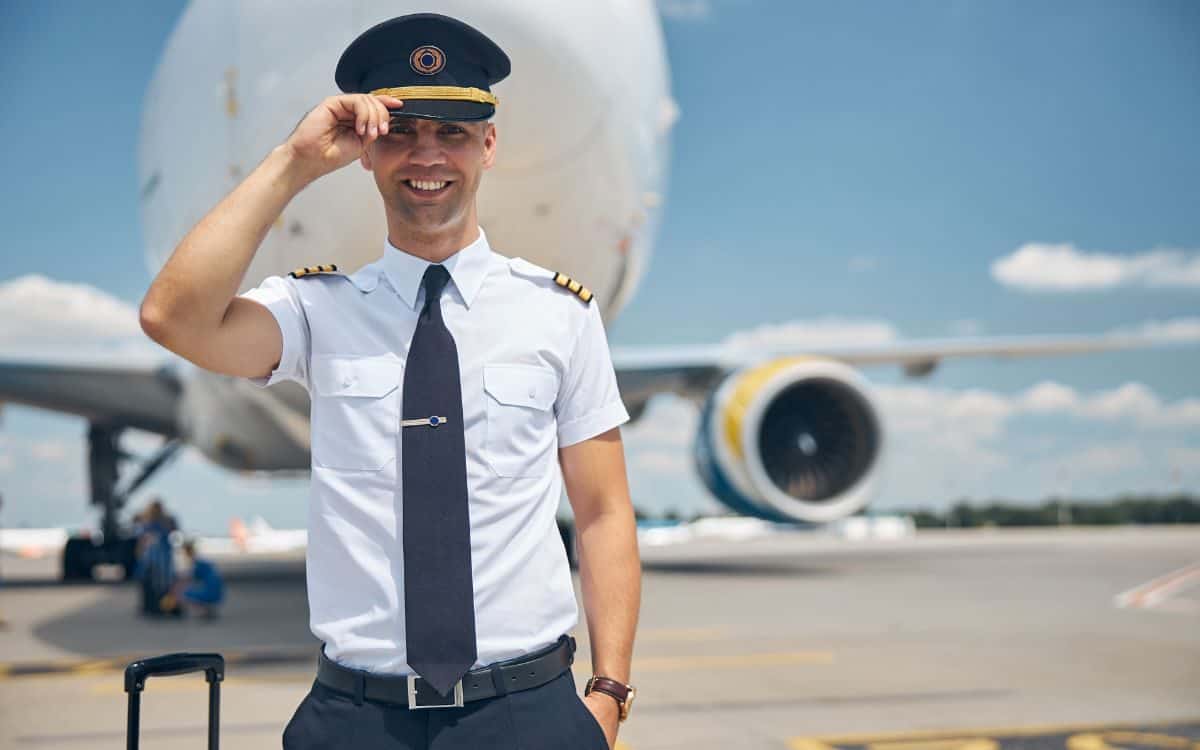For many aviation enthusiasts, flying isn’t an occupation, but an obsession. The destination becomes more significant when you fly to one of the most reputable and largest cargo carriers in the world. UPS pilots are more than just fly from point A-B. They are also responsible for time-sensitive cargo as well as ensuring security under pressure.
We’ll take a closer look at the steps to becoming an UPS pilot. This includes the requirements you need, the training programs and the job itself.

Image credit: flightschoolusa.com
The role of a UPS Pilot: More than Flying
UPS pilots, unlike commercial passenger pilots, are responsible for transporting crucial goods such as packages and documents across the national and international skies, often within tight deadlines. Pilots in this environment are constantly moving and are in charge of important cargo of high value or dealing with complex meteorological systems. The UPS pilots symbolize professionalism as well as reliability and technical proficiency.
UPS pilots need to be able handle everything from pre-flight procedures and emergency protocols, to communication with air traffic control and ground operations. The job demands precise flying, quick decision-making skills, excellent situational awareness and an unwavering commitment to safety.
UPS Pilot Qualification Requirements – Setting the bar high
UPS does not permit anyone to control its fleet. UPS pilot qualification requirements are among the most rigorous in the cargo aviation industry and with good reason.
Candidates need to have a bachelor’s or master’s degree in aeronautics, aviation, or a related field. Additionally, they need to have a FAA commercial license with instrument and multi engine ratings. The majority of UPS applicants hold at least two years of experience and up to 4,500 hours, and some of them have experience with turbine-powered aircraft.
Medical fitness plays a crucial role. Pilots must be in compliance with FAA health requirements. This includes having excellent vision and ability to pass comprehensive medical examinations. The applicant should be an U.S. citizen or hold the proper work authorization and they must also fall within a specific age range between 23 and 65.
UPS places a high value on professionals, knowledge from the field and expertise. These certifications were created to ensure that pilots are equipped to manage the challenges of international long-haul flights and UPS’s reputation for prompt delivery and safety.
UPS Pilot Programs: Get Ready for the Future
UPS’s extensive pilot-training program helps new employees meet the demands of UPS’s routes and aircraft.
Ground school is the first stage in the process of training, during the course, pilots learn about UPS processes, systems and company expectations. After that, simulator training sessions are conducted that simulate real-world emergency situations and flight conditions. Once simulator proficiency is achieved Pilots are then able to start Initial Operating Experience (IOE) real flights under the supervision by the senior UPS pilots.
These programs transcend the technical. They prepare pilots for operational efficiency, crew coordination, and real-time problem-solving–critical components of UPS’s global delivery infrastructure.
How to become a UPS Pilot How to Become a UPS Pilot: Charting Your Flight Path
If you’re serious about becoming an UPS pilot the path to success should begin with a top flight education. Affliation schools that are reputable, such as Florida Flyers Flight Academy, provide a solid foundation of knowledge and hands-on experience in navigation, aeronautics and safety guidelines.
After that, you can increase your abilities by accumulating flight hours on a variety aircrafts. Gaining experience in roles that focus on safety, teamwork and time-sensitive work will make you a better candidate when it comes to applying to UPS.
The Final Thoughts: A career that provides more than Paychecks
It’s not simple to become a UPS pilot. It requires dedication to technical proficiency, as well as the ability to work under pressure. For those who are up to the task, this is one of the most satisfying professions in aviation. It provides competitive compensation and travel opportunities around the globe, job security and the chance to play an essential role in maintaining the world economy. If you’re hoping to fly with a purpose, the UPS cockpit might just be the right seat.